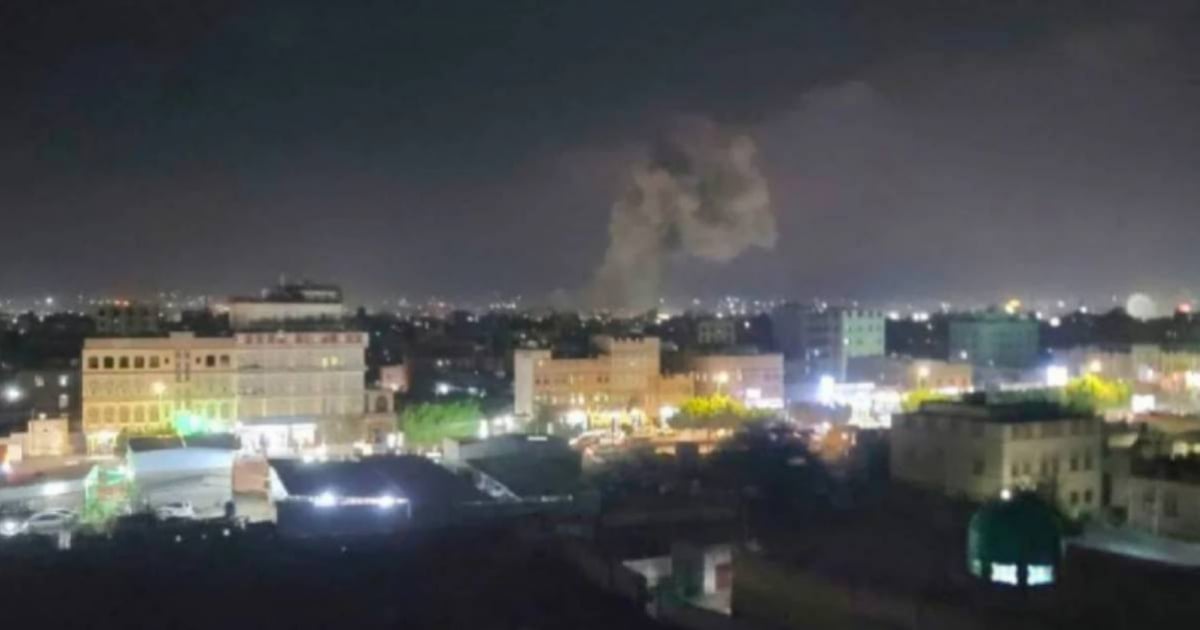The Trump Administration has found itself in hot water after mistakenly adding a journalist to a private messaging group where senior officials were discussing military strategies against Houthi rebels in Yemen. This leak has sparked a stir in Washington and prompted an internal investigation, despite the White House's attempts to downplay the issue. Jeffrey Goldberg, editor-in-chief of The Atlantic, disclosed in an article on Monday titled "The Trump Administration Accidentally Messaged Me Their War Plans" that he was included in a Signal app chat in early March. The account that added him bore the name of White House security adviser Mike Waltz.
The messaging group comprised key figures in the administration, including Vice President JD Vance, Secretary of Defense Pete Hegseth, Secretary of State Marco Rubio, and National Intelligence Director Tulsi Gabbard. According to the reporter's account, they discussed strategic details of attacks on the Houthis, including timing and weaponry types.
White House National Security Council spokesman Brian Hughes acknowledged that the messages appeared “authentic” and stated that the government was investigating how an unauthorized number was added to the conversation. Meanwhile, Secretary of Defense Pete Hegseth denied that the Trump administration had discussed military plans in a private chat. “No one was messaging about war plans, and that’s all I have to say,” he asserted from Hawaii, where he was in meetings with Indo-Pacific Command leaders.
Additionally, White House Press Secretary Karoline Leavitt accused Goldberg of sensationalism, claiming the entire matter was an overreaction on his part. "No 'war plans' were discussed. No classified material was sent in the conversation. The White House Counsel's Office has provided guidance on various platforms for President Trump's top officials to communicate in the most secure and efficient manner possible," she stated.
"As the National Security Council stated, the White House is investigating how Goldberg's number was inadvertently added to the conversation," she noted, emphasizing that "the attacks on the Houthis were successful and effective. Terrorists were eliminated, and that is what matters most to President Trump."
Former President Donald Trump claimed ignorance of The Atlantic's article and dismissed the publication's significance. “I know nothing about it. I’m not a big fan of The Atlantic. I think it’s a magazine that’s going to disappear,” he told the press.
According to Goldberg, the messaging group was used not only to coordinate the Yemen offensive but also as a forum for strategizing. Vice President JD Vance expressed concerns in the chat about the operation's economic consequences, warning it could increase oil prices and provoke public backlash. In response, Secretary of Defense Pete Hegseth argued that the narrative should focus on two key points: blaming Joe Biden for regional failures and highlighting Iran's funding of the Houthis.
Goldberg recounted his initial skepticism about the group's authenticity but confirmed the plans' reality when explosions occurred in Sanaa, Yemen's capital, on March 15, at the exact time discussed in the chat. Realizing the gravity of the error, the journalist decided to exit the group, inadvertently alerting the other participants to his presence in the conversation.
This incident has ignited a political storm in Washington and has raised concerns about communication security within Trump's government.
Key Questions on the White House Communication Breach
How did a journalist get added to a private White House chat?
The journalist was mistakenly added to the chat, which included high-ranking officials discussing military strategies, due to an error by the White House security adviser’s account.
What were the conversations in the chat about?
The discussions centered around strategic military details, such as timing and weaponry, for attacks on Houthi rebels in Yemen.
What was the White House's response to the mistake?
The White House acknowledged the error and stated that an investigation was underway to determine how the journalist’s number was added. They downplayed the incident, claiming no classified material was disclosed.
